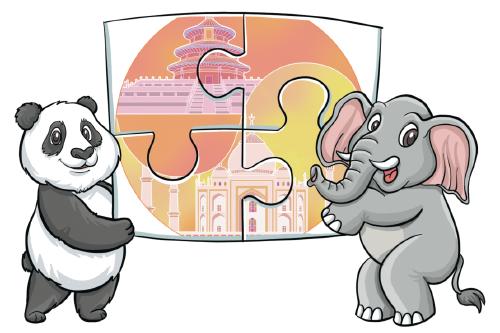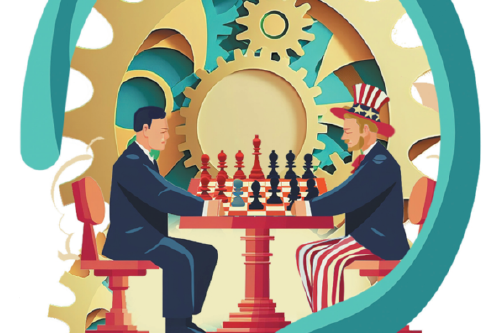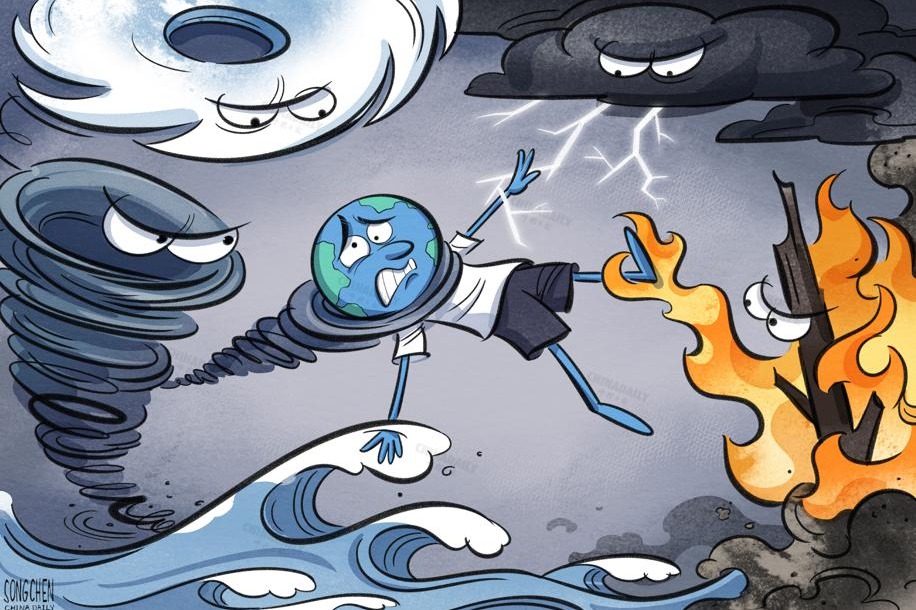Quest for inclusive globalization


The G7 members should concentrate on working to ensure a more equal and fairer world rather than telling others what to do
It is already 2021, but some seem ignorant of this, still living in the delusion of their imperishable greatness. Well, greatness passes away, and it is better to get rid of megalomania because it does no good in politics.
Aside from the United States, China produces one-fourth more than all the remaining six G7 members put together. With GDP(in purchasing power parity) of $26.7 trillion (17.5 percent more than the US), it is the world's largest economy. India is third, Russia, Indonesia, and Brazil-sixth, seventh, and eighth, respectively. The G7 economies produce a total of 30 percent of the global output, which is less than that of the BRIC countries-Brazil, Russia, India and China, and their share is dropping every year. Both Turkey and Mexico produce more than Italy, and the Republic of Korea more than Canada, which is only 15th in the world.
Is it any wonder, then, that the Chinese respond to the scolding of the G7 by saying that a small group of countries cannot tell the whole world how to arrange things? The population of the G7 countries is less than 10 percent of the inhabitants of the Earth but this panjandrum think that this is enough to instruct others on what to do and how to behave.
We are informed that the leaders of the seven richest countries in the world meet at the G7 Summit. But this is contradicted by the facts: in terms of income per capita Singapore and the United Arab Emirates are richer than Italy and Canada, Austria is richer than Germany, and Belgium is richer than Japan.
It was reported that the leaders of the major democracies had gathered in Cornwall as if democracy is more advanced in the United Kingdom than in Holland or in France than in New Zealand. According to the latest ranking by The Economist Intelligence Unit, there is only one G7 member-Canada-in the top 10 of the "major democracies". The rankings are led by the Nordic countries-Norway, Iceland and Sweden. Two of the G7 members-Germany and the UK-are in the second 10.Japan is 21st, the US ranks 25th, and Italy 30th, and the latter two are described as "flawed democracies".
The US is getting relatively weaker and is unwillingly to admit that it is no longer able to stand up to China on its own. It is looking for allies.
Unfortunately, they draw fundamentally wrong conclusions from the fact of their own weakness. American Sinophobia is astonishing. While during Donald Trump's presidency it could somehow be understood-understood, not accepted-as a result of his economic ignorance, as he did not comprehend the dynamics of globalization, the mechanisms of international competition and the essence of the trade balance, a more rational approach could rather be expected from the Joe Biden administration.
The way forward cannot involve the change of emphasis in the new Cold War suggested by the current US president, who wants to be better in terms of confrontation with China than his infamous predecessor and is trying to draw others into this game. The only healthy way to a better future is through the new pragmatism, cultural and economic cooperation that also transcends divisions, which will never be in short supply.
What is needed is a reinterpretation of globalization, which must indeed become more inclusive. In this respect, the G7 Summit does bring something good, although it is nothing new. Seeing the eruption of declarations about how it is going to be equal and fairer, more efficient and safer, more honest and cleaner, one might get the impression that this is a congress of international socialists and not a meeting of rich countries where money rules.
It is very good that there is a desire to support education in poor countries, so that more children and young people, especially girls, are educated. It is just fine that the mighty of this world are recognizing that excessive income inequality must be tackled. It is excellent that they finally want to put an end to the tax avoidance excesses that have been tolerated for years. It is even better that they have understood that it is necessary to fight poverty effectively and to reduce social exclusion. However, I suppose that it is not due to deep conviction, but rather in the wake of the Yellow Vest protests and the Black Lives Matter movement that neoliberals and conservatives have become frightened of their own shadow and are beginning to understand that the situation is getting dangerous to them. Is it not because the so-called liberal democracy, which they love so much, is in crisis?
The situation has become dangerous because of China, which, although it has a per capita income just approaching the world average, has managed to completely eradicate extreme poverty. It has been able to do this while in neighboring democratic India, there are more than 100 million destitute people living-and dying-in abject poverty.
The situation has become dangerous because, although some in the West do not like it, China is pursuing its giant transnational Belt and Road Initiative with great vigor and consistency. President Biden's call for Western democracies committed to "our shared values" to oppose this initiative is astonishing. If the real issue is to increase the rich countries' commitment to investing in human capital and infrastructure in developing countries, this should not be done with anti-Chinese intentions, the existing network of global and regional structures-from the World Bank to the continental development banks, such as the Asian Development Bank or African Development Bank-should be improved and these banks must be recapitalized. China must not be treated as an enemy in co-financing the development of the world economy but must be pragmatically cooperated with.
Similarly, there should be no rivalry with China (or with Russia) in helping to vaccinate the populations of less developed countries against the novel coronavirus. The G7's intention to give them a billion vaccines is commendable, but it would be even more so if the aid declared was combined with the actions of others, especially China. It was President Xi Jinping who called on others to make vaccines a global public good. This requires sound global coordination, and no one is better equipped to do this than the World Health Organization. Unfortunately, even when it comes to this humanitarian issue, the G7 has failed to call for global cooperation, and instead, it relies on harmful competition to show who is "better".
The US is increasing its wasteful spending on arms and putting pressure on others to follow this path, as if our prosperity depended on it, rather than providing financial assistance to help the world's poor. What if this zeal was transferred to the decarbonization of the economy? In this respect, the G7 Summit went far, at least in terms of assurances. It will now be crucial that the politicians from these and other countries-including China, India and Russia-will come to Glasgow in November for the COP 26 climate summit. If these are no longer just empty declarations-like the one made by the G7 in 2009, to give the less developed countries $100 billion per year starting from 2020 to combat global warming-but responsible commitments, then the Cornwall pledges will be written on the right side of history.
Let us treat the British G7 Summit not just as group's swan song, but as working consultations ahead of the G20 Summit, which, with 19 countries and the European Union, is also not the whole world, but certainly no longer the usurper of the G7, and, thanks to its diversity, is much more representative. If the accents of social concern expressed this time are sincere and carried forward to the upcoming G20 Summit then it will be a good thing. For the time being, the great politicians are back in their capitals, telling their finance ministers to borrow huge amounts of money and central banks to print even more, so that nothing on the long shopping list will be unavailable.
The author is a professor at Kozminski University in Warsaw, a distinguished professor of Belt and Road School at Beijing Normal University, and former Poland's deputy prime minister and minister of finance. The author contributed this article to China Watch, a think tank powered by China Daily. The views do not necessarily reflect those of China Daily.


































